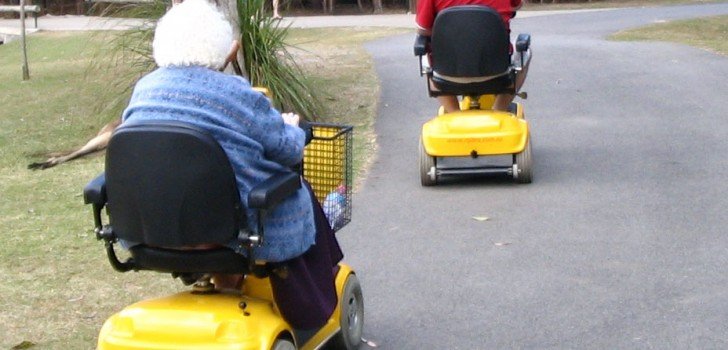An innovative new medical suit is allowing young people to simulate the effects of aging. The suit transforms healthy and active young people into frail senior citizens who can hardly even move or hear when their own name is called.
The “frail aging simulation suit” is currently being used by the Michener Institute in order to help train applied health students in developing empathy for their future patients. By having students wear the suit, they are hopeful that they will be able to better accommodate the needs of seniors once they are professionals.
Originally, the suit was used by Japanese car companies in order to help them design vehicles that cater to the needs of senior citizens. As the baby boomer generation continues to age, accommodating for seniors will become a serious need in virtually every industry. Every place from hospitals, to banks, to cars will need to be accessible by seniors.
People wearing the suit suffer from limited mobility, distorted vision and hearing, stiff joints and reduced sensitivity. Everything from walking to getting dressed to answering basic questions becomes much more difficult. Indeed, the suit portrays the troubles that seniors have with the most basic of everyday tasks.
Students who wear the suit often become more sympathetic towards seniors. They print out paperwork in a larger font. They offer hospital gowns that are easier to put on. They allow seniors to sit down while they are checking them into a facility. Many of these practices take very little extra effort, and they are extremely beneficial to seniors.
As for the students, many of them have said that they were incredibly moved by the experience. One therapist who has been in the industry for more than 20 years tried on a suit, and he said that the experience caused him to adjust the methods he had used throughout his entire career.
Sometimes all it takes is putting yourself in someone else’s shoes in order to understand the challenges that they face. The suit has certainly made future medical leaders think harder about how they can benefit their older patients.
Stay Connected